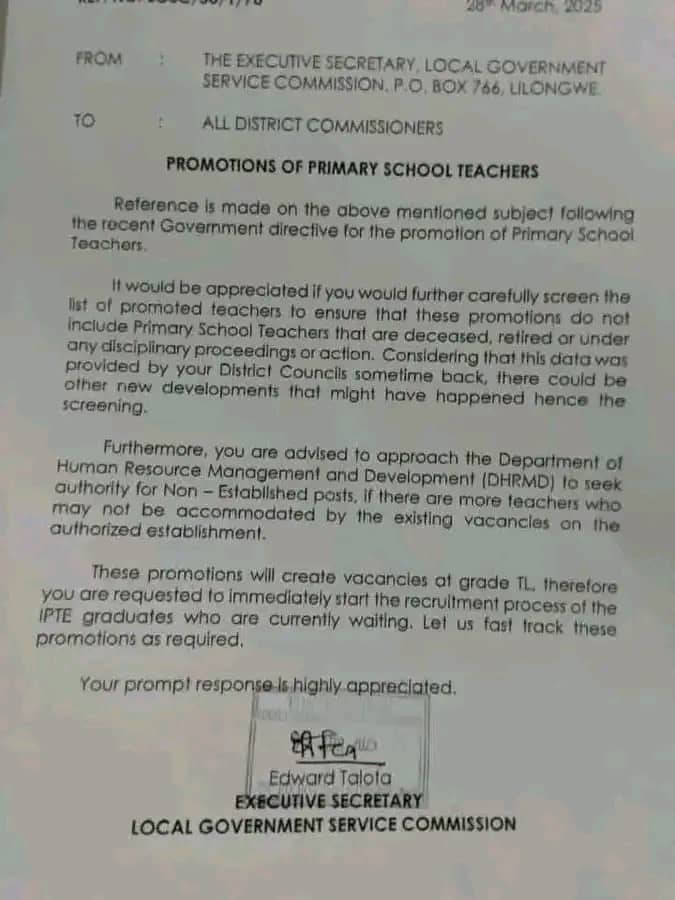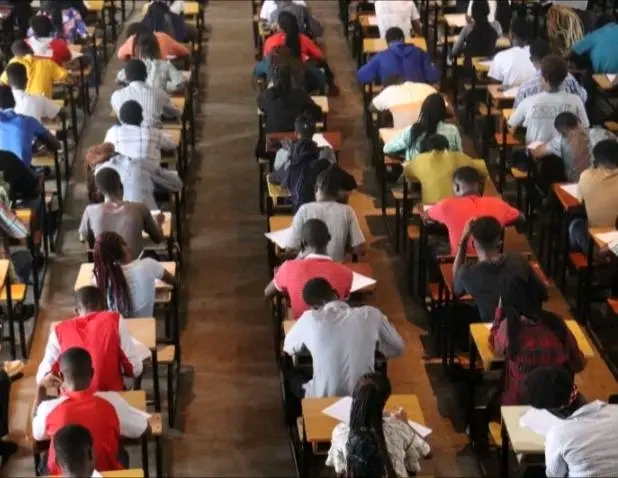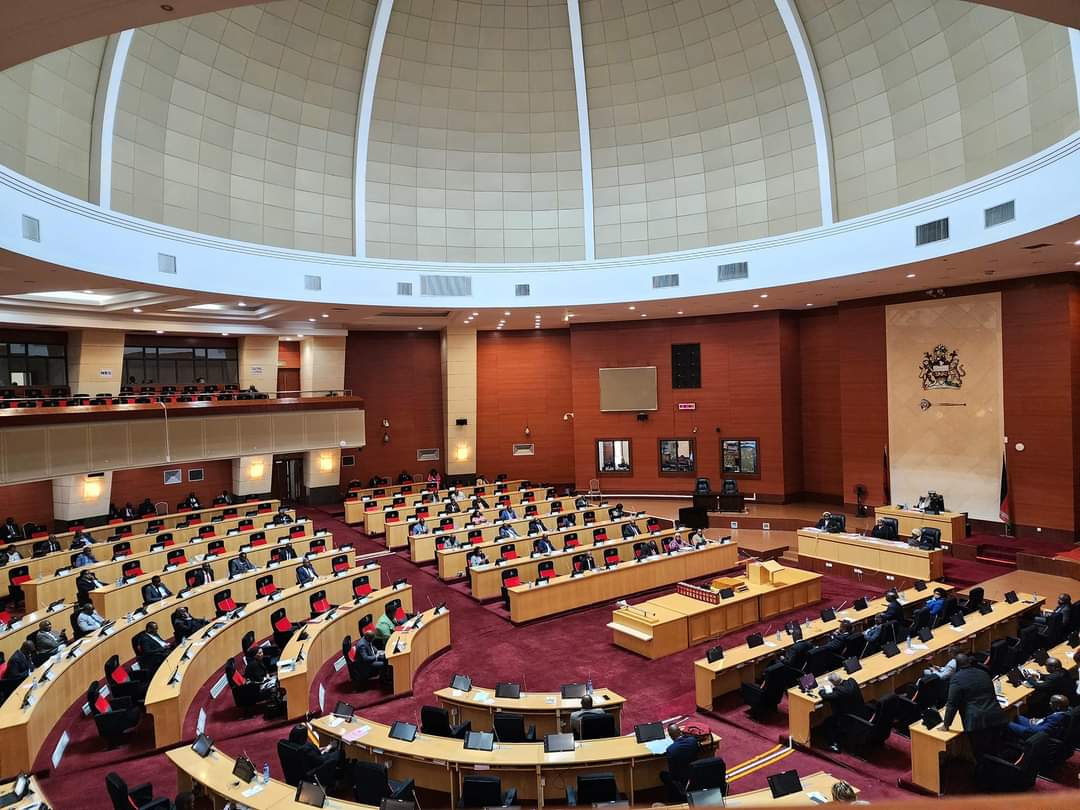By Burnett Munthali
The government’s decision to promote all primary school teachers ahead of the September elections has raised numerous questions about its timing and practicality.
At first glance, the move may appear to be a positive step toward recognizing the hard work of teachers, who are often underpaid and overworked.
However, a closer look at the timing of this decision suggests that it could be politically motivated, aimed at gaining favor from a significant voting bloc in the run-up to the elections.
Promoting all primary school teachers without clear criteria or performance evaluations raises concerns about whether the move is a genuine effort to improve the quality of education or simply a tactic to win votes.
Teachers, who play a crucial role in shaping the future of the country, undoubtedly deserve better recognition and compensation for their work.
Yet, this decision raises questions about how such a blanket promotion will impact the education system, particularly when the government faces significant financial constraints.
Promoting all teachers without regard for individual performance could lead to a dilution of merit and undermine efforts to improve the quality of education in the country.
While teachers may appreciate the gesture of promotion, it is important to consider whether this will actually address the deeper systemic challenges in the education sector, such as overcrowded classrooms, inadequate resources, and lack of professional development opportunities.
Critics argue that the government should focus on addressing these underlying issues rather than offering blanket promotions that may not have any long-term positive impact on the sector.
The timing of this decision, just months before the elections, raises further suspicions that it is more about securing votes from the teaching community than about creating meaningful reform in the education sector.
Such decisions, made in the heat of an election cycle, often come with short-term benefits but may fail to provide lasting solutions to the challenges that the education system faces.
There is also the practical concern of whether the government can actually afford to promote all teachers, given the financial strain on public resources and the wider economic challenges the country faces.
While promotions may be seen as a reward for hard work, the decision should be carefully evaluated in terms of its financial sustainability and its potential long-term effects on the education system.
Moreover, this promotion could set a precedent that makes it harder for future governments to make similar decisions without facing pressure to extend such blanket promotions across other sectors.
Instead of blanket promotions, a more targeted approach that takes into account teachers’ individual performance, professional development, and contributions to the educational system could lead to more meaningful and effective improvements.
The question that remains is whether this promotion decision is part of a broader strategy to distract voters from other pressing issues or whether it genuinely addresses the needs of teachers and the education system as a whole.
Ultimately, the practicality of promoting all primary school teachers depends on the government’s ability to back up this decision with tangible improvements in education quality, teacher training, and overall system reform.
As the election approaches, it will be critical to assess whether this move is seen as a genuine effort to improve the education sector or simply a calculated political maneuver.
The public’s reaction to this decision will provide important insights into the role that education policy plays in shaping electoral outcomes and the broader political landscape in Malawi.




